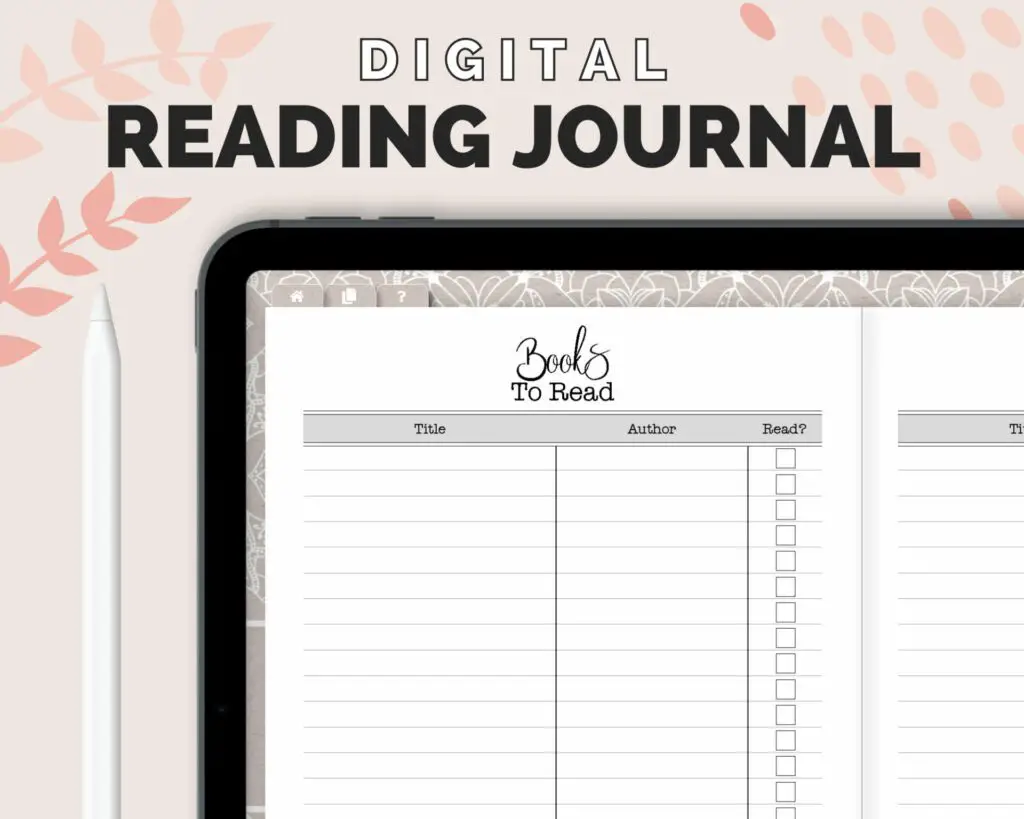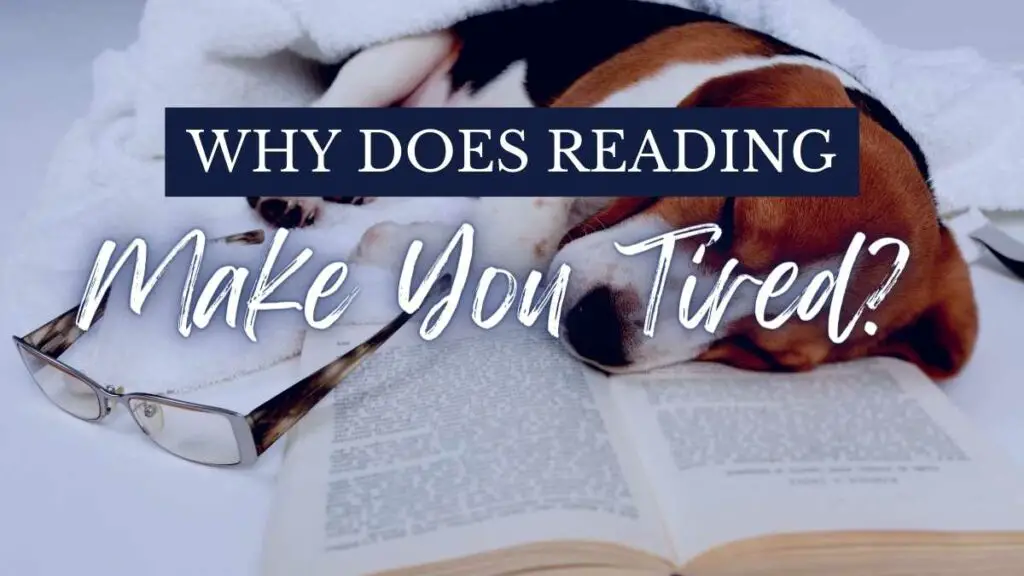This post may contain affiliate links. Please read our disclaimer for more information.
Do you ever feel tired after reading?
You’re not alone!
Many people experience fatigue or drowsiness after reading.
In this blog post, we’ll explore the reasons why reading makes us sleepy and provide some tips on how to combat it.
Why Does Reading Make you Tired?
There are a number of reasons why reading can make you feel tired. The act of curling up with a good book can be very relaxing but reading is also surprisingly taxing on your brain. When you read, your brain is constantly working to decode the words on the page and form pictures in your mind. This cognitive process can be exhausting, especially if you’re reading for long periods of time or are already fatigued after a long day. Reading can also be physically tiring if you’re sitting in a poor position or straining your eyes to read. The content of what you’re reading can also play a role in how sleepy you feel. If you’re reading a particularly dry or boring book, it’s only natural that your eyelids will start to feel heavy.
Relaxing with a good book is a popular pastime, but it’s not uncommon to feel tired after reading for even a short period of time. While the act of reading itself doesn’t use a lot of physical energy, your brain is actually working hard to process the information you’re taking in. All that mental stimulation can be exhausting, and it’s one of the main reasons why reading makes us sleepy.

Reading before bed is a great cure for insomnia so it makes sense that it would make you sleepy at other times!
If you’re a student or book lover this can quickly become a serious problem! You may have been looking forward to the next chapter all day only to promptly nod off as soon as you get the change to sit down and read it. So what can you do about this pesky side effect of reading?
It can be hard to focus on the text when your eyes feel heavy and your head is nodding. But does reading actually make you tired? Or are you just not used to spending long periods of time reading?
Let’s take a closer look at the science behind why reading can make us tired.
Mentally tiring – When you read, your brain is constantly working to decode the words on the page and form pictures in your mind. These mental processes can be exhausting, especially if you’re reading for long periods of time or are already tired after a long day.
Getting lost in your imagination – Lets face it, reading is basically guided daydreaming, and daydreaming isn’t far removed from sleep. In fact, both activities share some common features. When you’re daydreaming or lost in a book, your body is in a state of relaxation and your mind is free to wander. This can be a very pleasant and soothing experience, but it’s not surprising that it can also make you tired.
Relaxing – Many people enjoy curling up at the end of the day with a good book. The very nature of doing so can feel a little like a ritual. We make sure we’re comfortable, maybe make ourselves a hot drink and snuggle down to read, comfy and cosy and uninterrupted. Is it any wonder reading can make us nod off?
Reading in low light – One of the most common reasons people feel tired after reading is because they’re doing it in low light. It’s not just the act of reading that can be tiring, sitting still in a dimly lit room can signal to your brain that it’s time to go to sleep as well as increasing eye strain which can be a another cause of fatigue.
Sitting Still – The act of sitting still for long periods is a lot like meditation. It can help to clear your mind and relax your body. But it can also have the effect of making you feel sleepy. If you find yourself getting drowsy while reading, try taking a break and moving around for a few minutes before continuing.
Physically Tiring – Sitting in an uncomfortable position or holding your book at an awkward angle can lead to physical fatigue. If you find yourself getting tired while reading, make sure you’re not slouching and that your book is at a comfortable angle.
Reading Matter – What you’re reading can also play a part in how tired it makes you feel. If you’re reading a particularly dry or dense text, it’s only natural that your brain will start to shut down in an attempt to protect itself! If you’re trying to process a lot of information or follow a complex plot, your brain will be working hard and you may start to feel tired. If the book you’re reading is putting you to sleep, try switching to something lighter and more enjoyable.
Melatonin – When we’re relaxed and comfortable, our brains are more likely to release a hormone called melatonin. This hormone makes us feel drowsy and is one of the main reasons why reading can make us tired.
Meditation – The act of reading can induce a meditative state, where we’re highly focused and yet our minds are allowed to wander, lost in our own imagination. This can be incredibly relaxing, and can easily lead to sleep.
Eye Strain and Fatigue – Spending long periods of time reading can be tiring on your eyes and your brain. Straining your eye muscles can cause your eyes to want to close and lead to sleep. And if you’re reading in a low light, this can also add to feelings of sleepiness.
Readers Block – If you find yourself constantly starting and re-starting books, or not being able to focus on your reading, this can also lead to fatigue. It can be difficult to get into a book if you’re tired or struggling to concentrate . If you find yourself in this situation, it’s best to take a break and come back to it when you’re feeling more rested.
Readers Block
Have you’ve been struggling to focus on you reading or find it has begun to feel like a chore?
Check out our post about readers block for some helpful tips and tricks to get out of a reading slump.
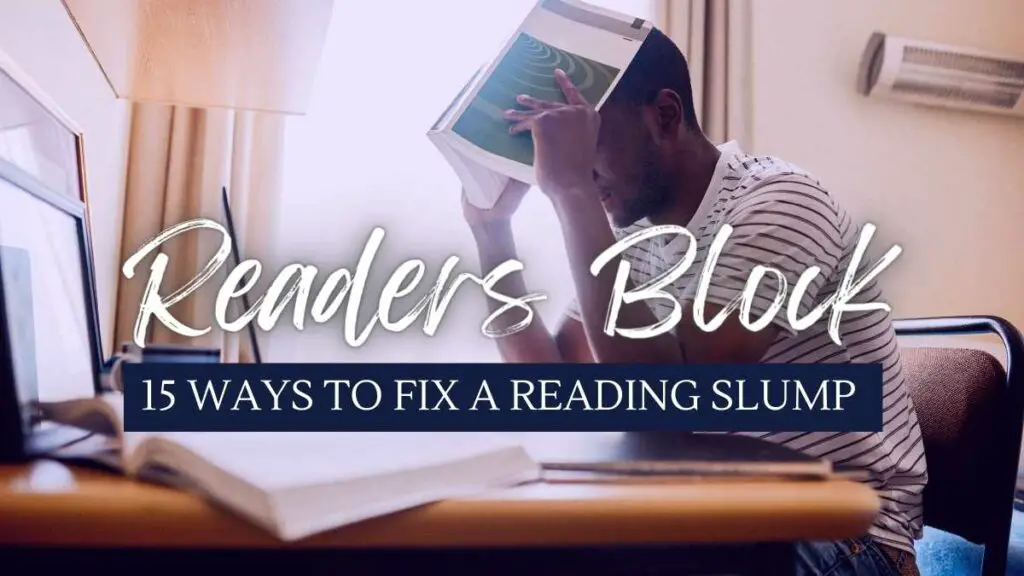
Insomnia Aid – On the positive side, reading can be a great cure for insomnia. It can help to relax the mind and body, making it easier to fall asleep. One study found that the act of reading in bed also improved the reported sleep quality of participants.
Now that we know some of the reasons why reading can make us tired, let’s look at some ways to combat it.
- Get more sleep: This one might seem obvious, but if you’re not well-rested to begin with, you’ll be more likely to feel sleepy while reading. Make sure you’re getting enough sleep each night and you may find it easier to stay awake while reading.
- Read in a well-lit room: this not only avoids straining your eyes, it also signals to your brain that it’s not time to sleep yet.
- Don’t read in bed: obviously, if you’re using reading to beat insomnia then this won’t apply to you, but if you’re just trying to stay awake while reading during the day, find a different spot to curl up with your book.
- Better posture: as we mentioned before, sitting in an uncomfortable position can lead to physical fatigue. On the other hand getting too comfortable can make it more likely that you’ll fall asleep. To combat fatigue while reading sit up straight in an alert but comfortable position making sure your book is at a comfortable angle.
- Take breaks: every 30 minutes or so, stand up and stretch or walk around for a minute or two. This will help to keep your energy levels up and prevent you from getting too comfortable. It will also give your eyes and brain a rest and get your blood flowing.
- Get some fresh air. Reading by the fireside might be cozy, but it’s not going to help you stay awake. If you’re feeling sleepy, step outside for a few minutes and get some fresh air. The change of scenery and burst of energy from the fresh air will do wonders for your alertness.
- Read standing up: standing up while reading can help to keep you awake and alert. It also has the added benefit of burning more calories than sitting.
- Choose an interesting book: if the book you’re reading is boring, it’s no wonder you’re falling asleep! Choose something that’s engaging and enjoyable to read.
- Keep it simple: If you’re finding it hard to focus, try reading material that’s easier to follow or lighter in content.
- Read for shorter periods of time: this seems like a simple fix but when you’re stuck into a good book it can be hard to pull yourself away. Try setting a timer for 20-30 minutes and reading until it goes off.
- Drink some water or have a small snack: This will help to rehydrate and refuel your body, making it easier to stay awake. Just be careful not to start snacking to keep yourself awake!
All in all, reading does use a surprising amount of energy. The mental stimulation that comes from taking in all that information that can be tiring. Just like watching a film or TV, our brains need to process what we’re seeing and listening to. So if you’re finding yourself nodding off while reading, it might be time to take a break. Get up, walk around, and maybe have a snack or some water. And if you’re still struggling, try reading something lighter or for shorter periods of time.
With these tips in mind, you should be able to power through even the sleepiest of books! Happy reading!
Reading Journals
Check out our reading journals available in a range of formats to suit your preferences. Tracking your reading and journalling about books read is a great way to get more from your reading and remember the plot of books read.
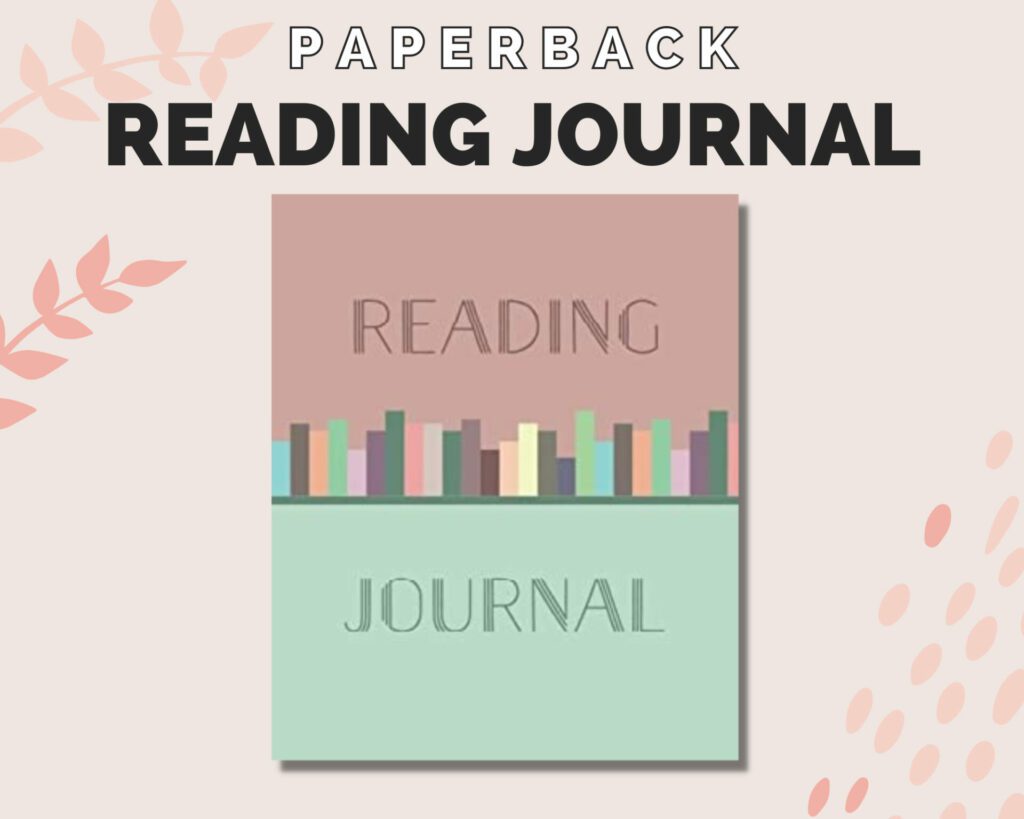
Reading Journal Book
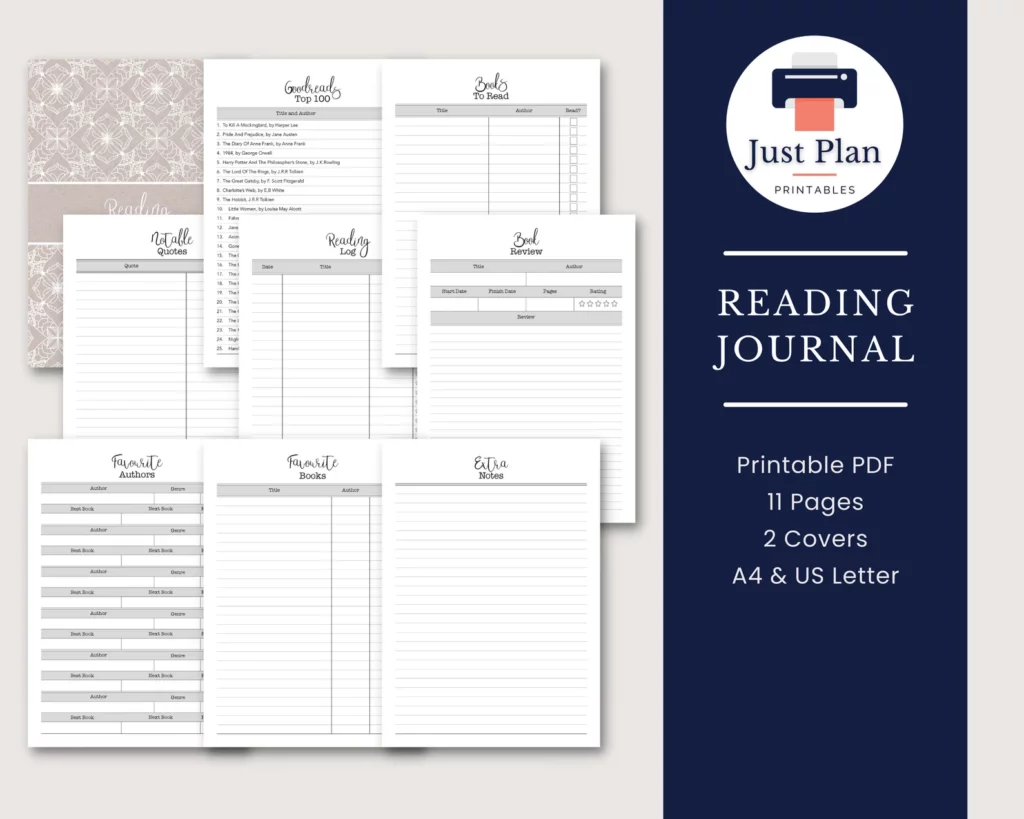
Printable Book Log
